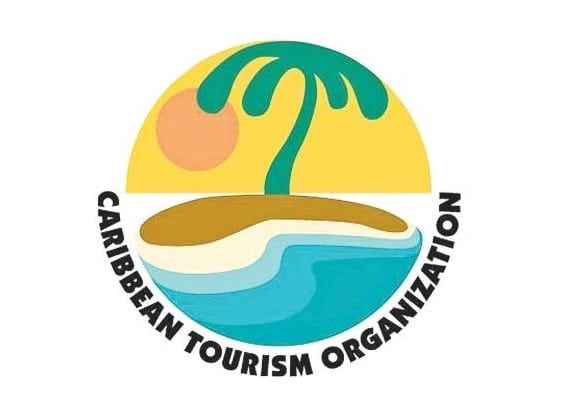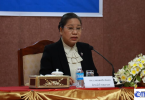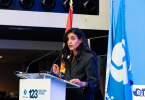The Caribbean Tourism Organization (CTO), the region’s tourism development agency, has been working closely with its member country, Dominica, to be better able to plan for, withstand and recover from the negative impacts of climate change and natural disasters.
The CTO has completed a two-day climate sensitization and disaster risk management workshop in Roseau, aimed at facilitating the sharing of knowledge and best practices on strategies related to climate mitigation and adaptation, as well as identifying sound disaster risk management approaches.
Dominica suffered a direct hit by category five Hurricane Maria last September, which wiped out 226 percent of its gross domestic product, two years after Tropical Storm Erika passed over the island, destroying an entire village, killing 20 people and leaving behind damage to 90 percent of the country’s GDP.
“The topics of climate change and disaster preparedness are very pertinent to us in Dominica and in the wider Caribbean. We live in a region that is prone to the effects of climate change and disasters especially hurricanes. Of course, we have first-hand knowledge and recent experience with hurricanes,” Colin Piper, the chief executive officer of Discover Dominica Authority (DDA), the island’s tourist board, said at the opening of the workshop
“Anecdotal data indicates that tourism arrivals after natural disasters reduce by up to 30 per cent for up to three years. We are in fact experiencing a reduction in promotable visitor arrivals. For some properties, their occupancy levels may be up due to aid and agency short stays, but we must address this issue which threatens our livelihood within the hospitality industry and as nation,” he added.
Thirty tourism practitioners and decision makers from the public and private sectors participated in the event, which formed part of the “Supporting a Climate Smart and Sustainable Caribbean Tourism Industry” project currently implemented by the CTO, with funding and technical assistance from the Caribbean Development Bank, through the joint Natural Disaster Risk Management (NDRM) program for Caribbean Forum states, undertaken in conjunction with the African Caribbean and Pacific Group and the European Union.
The 26-27 July workshop, facilitated by strategic planning expert Dr. Jennifer Edwards, was the latest in a series of training programs being conducted by the CTO for Dominica.
Earlier this month a “Delivering Quality Service” workshop was held for 55 craft and souvenir vendors, hair braiders and tourism taxi service providers to help them better appreciate the importance of their roles in visitor satisfaction; improve people relations through effective communication and understand how positive visitor interactions result in satisfied visitors.
That workshop, facilitated by the CTO’s regional human resources development consultant Sharon Banfield- Bovell, covered areas such as understanding the customer, the importance of delivering quality customer service and the ten principles of customer service, all areas which Dominica said were critical in ensuring the service providers are equipped with the necessary skill set to deliver the highest level of customer service.
In addition, 25 participants each are to be trained in the management of sites and attractions at a workshop which targets forestry park wardens and the Waitukubuli National Trail Project among others, and a management of service quality workshop for senior executives and general managers in private and public sector tourism enterprises.
The CTO’s resource mobilisation and development division offers several training and development programs, for member countries and the tourism sector, in keeping with its mandate to assist in developing and strengthening human capital in the region’s tourism sector so as to offer high levels of professional service.






